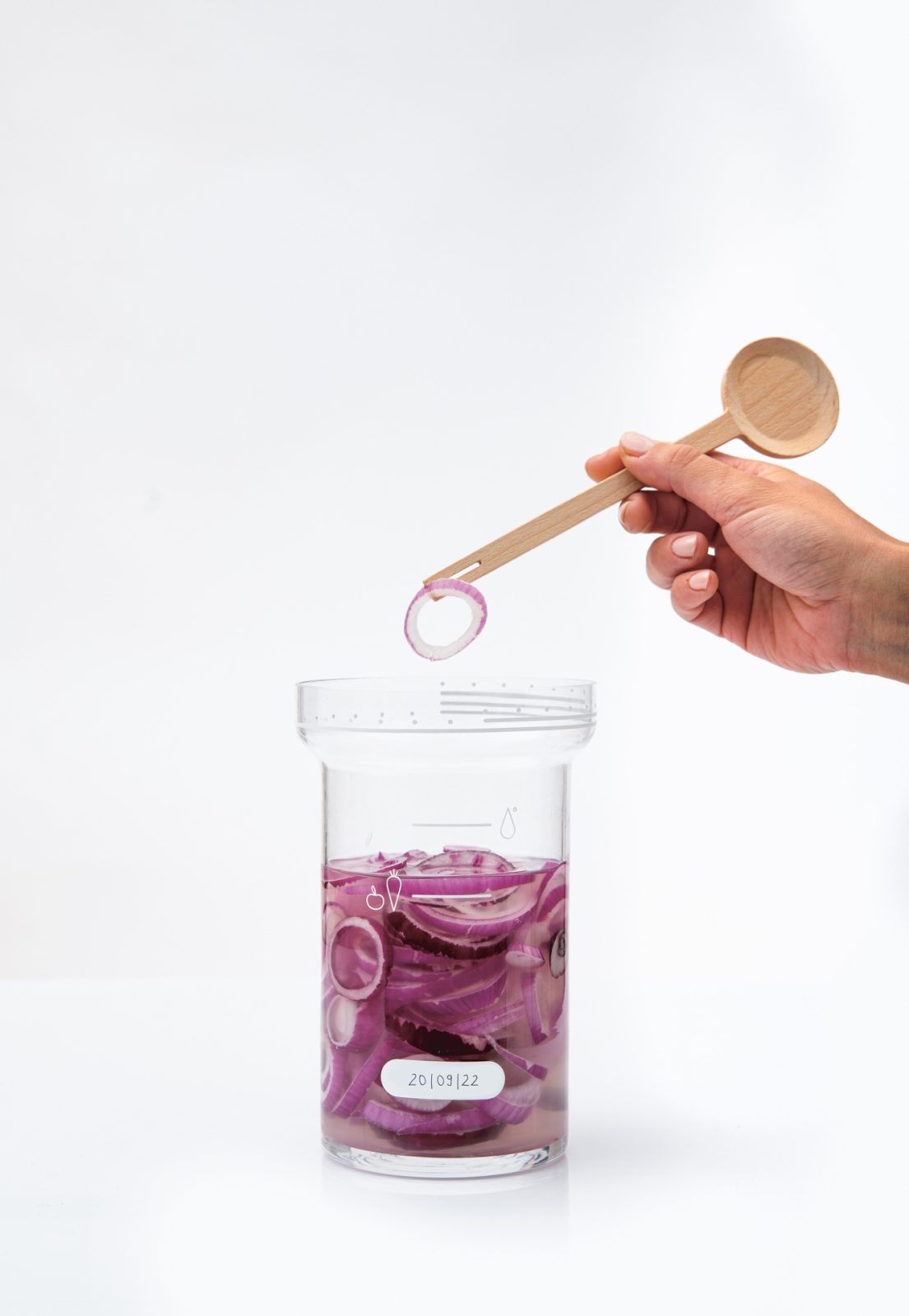
Das Ornament an der Sache und die Sache als Ornament
In the last century, ornamentation was at times regarded very critically. The artistic and individual ornamentation of objects, for example, which did not follow any pragmatic or functional thoughts, represented a clear contrast to functionalism. This opinion, which is controversial from today’s perspective but is nevertheless persistent, led to a functionally oriented and reduced form of design. This development gives rise to the question of whether this minimalism does not itself represent ornamentation in modernism.
My theoretical work puts ornamental design in a new light and reconsiders the classical definition: modern and minimalist design in detail, or in the composition itself, is seen as ornamental in character. In addition, it investigates whether and in what way media presence influences this ornamental character.
Fermentar
Approximately one third of all food produced worldwide is thrown away, and this in times of climate change and a growing world population. Valuable resources are wasted and unnecessary costs are incurred. People have lost their appreciation of food and they should fundamentally rethink the way they treat it. Fermentar is designed to reduce food waste in our kitchens. It unites the advantages of fermenting as an alternative food preparation and preservation. It comprises a range of glass jars that allow for resource-efficient storage, processing and fermentation. This enables the natural nutrients, freshness and flavour of food to be preserved. Moreover, it promotes a change in behaviour towards food. The best part about fermentation is that it happens all by itself: it occurs completely on its own and without the use of electricity.




